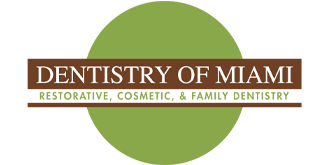Having your morning cup of coffee is often a standard part of everybody’s morning. However, with drinking coffee, many articles often report how harmful it can be to your teeth. There is a good reason for this – the added sugars and creamers often feed the bacteria in our mouths and give more way to tooth decay, and the acidity of coffee itself often causes grooves to develop in the enamel, causing it to wear down over time and lead to staining. For those highly focused on preventing tooth decay, this fragrant drink may seem like a hazard to your oral health. But in recent years, some research has developed and shown that coffee may actually be good for your teeth.
Coffee Contains More Than Just Caffeine
Coffee remains one of the most likable drinks not only for its high caffeine content but also for its bitter, aromatic flavor. Today, coffee brewing has turned into an art form, allowing people to have this drink in many varieties and flavors, and because they all come from roasted coffee beans, they all share the same secret that makes them surprisingly good for your teeth. What matters for researchers when looking into the relation between coffee and how it affects teeth is how it’s prepared.
Because of the roasting process coffee beans go through, researchers from the Journal of Conservative Dentistry cited that coffee has an anti-bacterial property called trigonelline. Trigonelline is the substance responsible for the taste and smell of coffee, but it also contains anti-bacterial properties that destroy the streptococcus mutans bacteria that are responsible for tooth decay. Researchers looked at the different preparation methods for coffee and found that depending on the type of roasting process it goes through, the coffee beans will contain varying properties, including:
- Instant Coffee: Instant coffee has the best ability to battle off bacteria due to the particular brewing method. The brewing method for instant coffee helps protect the trigonelline molecule and thus helps retain its properties.
- Ground Coffee: On the other hand, ground coffee has a lower ability to protect teeth due to lower amounts of trigonelline throughout the ground beans.
- Darker Roast Is Better: Darker coffee varieties have higher concentrations of trigonelline, and their ability to maintain the molecule helps give our teeth better protection.
- Caffeine Doesn’t Matter: Even while caffeine brings its benefits, caffeine does not play a role in protecting teeth and thus makes decaffeinated coffee just as effective as caffeinated.
The Side Effects of Drinking Coffee
Even with this new knowledge, coffee still maintains high amounts of acidity, making it easy for our teeth to wear down over time and stain easily. With this in mind, it’s important to practice moderation when it comes to drinking your coffee, including limiting your sugar and creamer intake. If you plan on drinking coffee, we recommend drinking it once a day minimum, and we also suggest that your practice brushing and flossing your teeth afterward so you can have a healthy smile.


